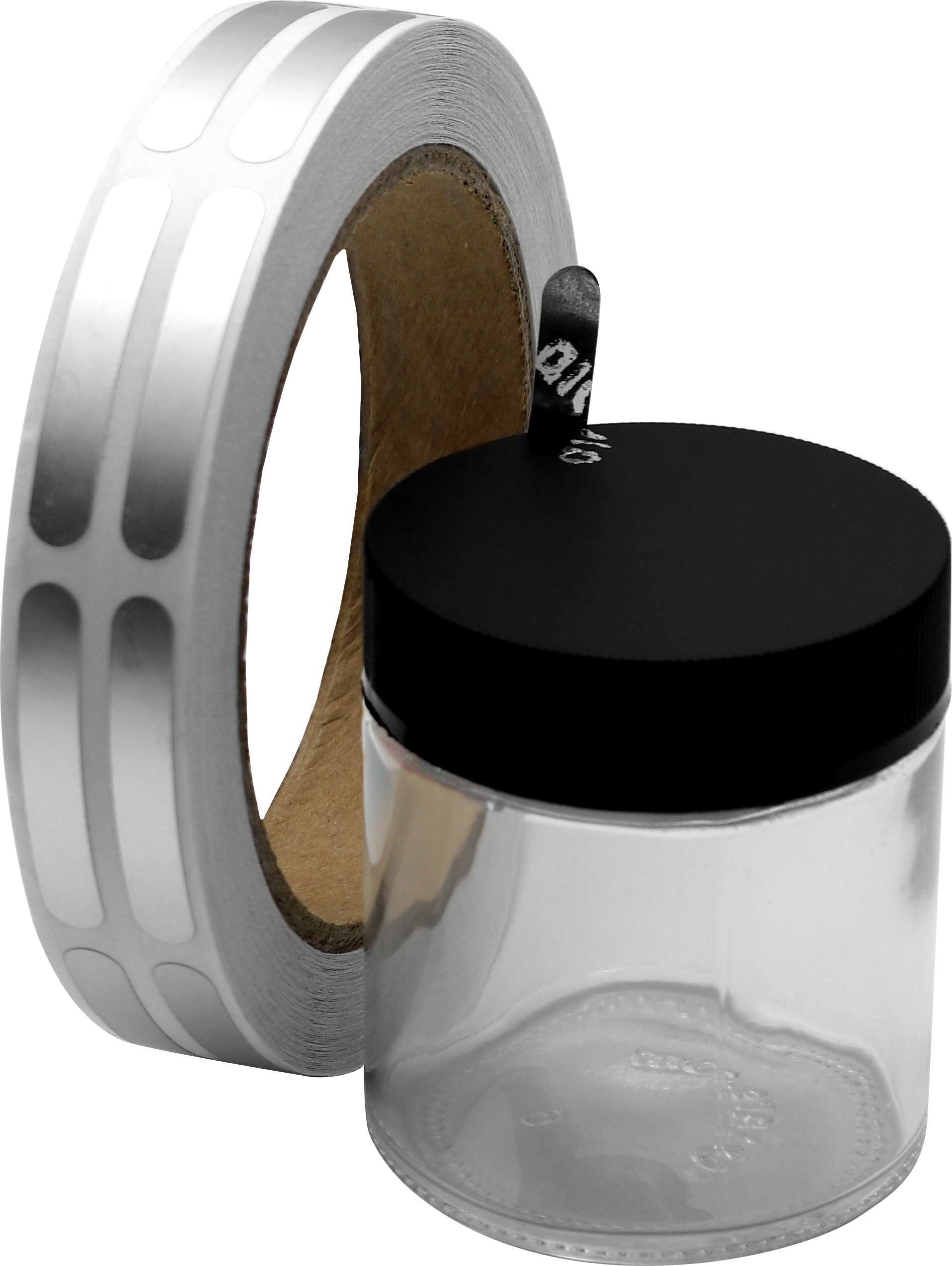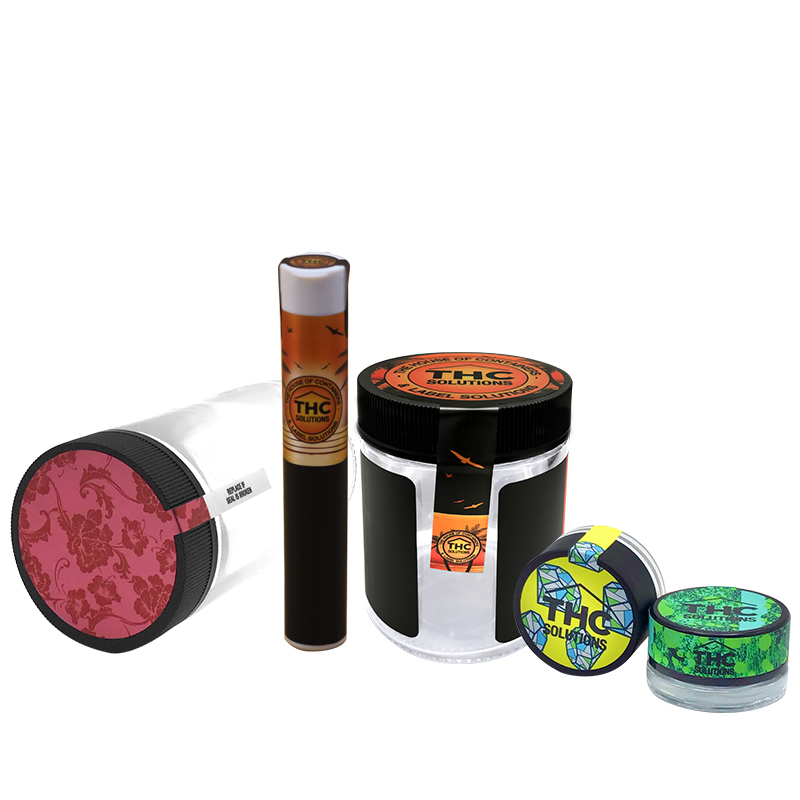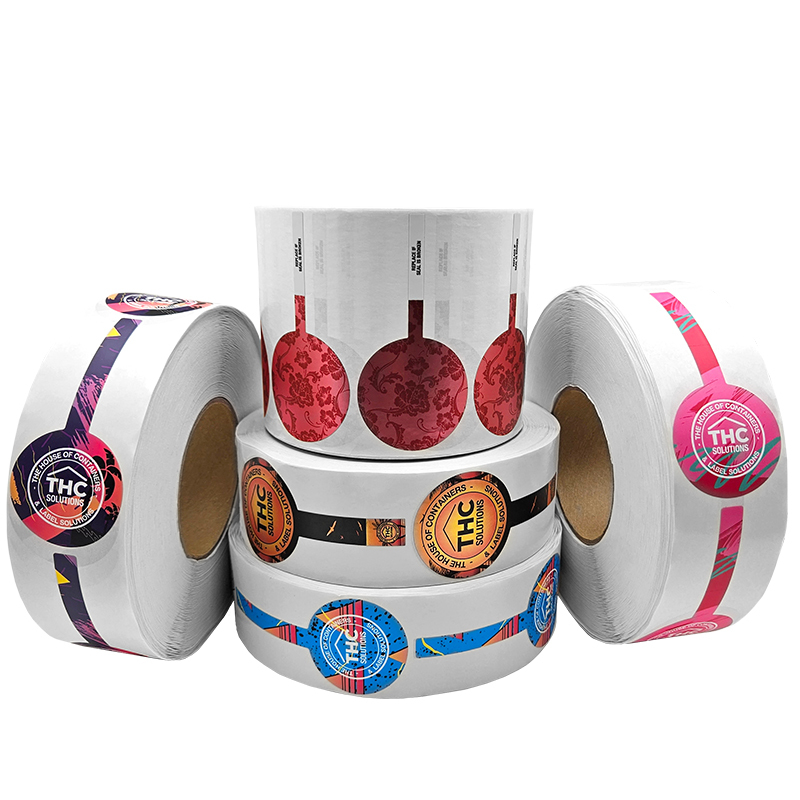As the cannabis industry continues to expand across the United States, regulatory compliance and consumer safety have become key priorities for licensed operators. One critical component of this safety infrastructure is tamper-evident labeling. More than a regulatory checkbox, tamper-evident features play a central role in protecting product integrity, ensuring consumer trust, and supporting the legitimacy of cannabis as a regulated industry.
Why Tamper-Evident Labeling Matters in Cannabis
- Consumer Safety and Trust
Tamper-evident packaging provides a clear visual indication if a cannabis product has been opened or altered after manufacturing. This is especially important given the psychoactive nature of THC products and the medical use of cannabis in many states. Consumers rely on these indicators to feel safe about what they are ingesting or applying. - Regulatory Compliance
State cannabis regulations often require tamper-evident labeling as a mandatory condition for retail sale. Failing to comply can lead to fines, product recalls, or license suspensions. - Prevention of Product Contamination and Diversion
Cannabis products are at risk of being altered, contaminated, or diverted (illegally repackaged or resold). Tamper-evident seals act as a frontline deterrent against this kind of tampering, helping to keep the legal cannabis supply chain secure. - Brand Protection
A visible tamper-evident feature helps preserve brand integrity by demonstrating a brand’s commitment to quality and consumer safety. It's a sign of professionalism in a still-stigmatized industry striving for legitimacy. - Legal Defense and Liability Limitation
If a legal issue arises related to product tampering, having proper tamper-evident labeling in place can help limit the manufacturer’s or dispensary’s liability, showing due diligence was observed.
States That Require Tamper-Evident Cannabis Labeling
Most legal cannabis markets in the U.S. require tamper-evident features, although the definitions and enforcement may vary. Here are key states with explicit requirements:
- California: Cannabis products must be sold in child-resistant and tamper-evident packaging. This is enforced by the Department of Cannabis Control (DCC).
- Colorado: The Marijuana Enforcement Division (MED) mandates tamper-evident packaging for all retail marijuana products.
- Oregon: Under the Oregon Liquor and Cannabis Commission (OLCC), tamper-evident packaging is required for most consumer cannabis products.
- Washington: Products must be placed in tamper-evident, child-resistant packaging prior to sale. The Washington State Liquor and Cannabis Board (WSLCB) enforces this rule.
- Michigan: Michigan requires all cannabis product packaging to be tamper-evident, resealable (where applicable), and child-resistant.
- Massachusetts: Products must be sold in tamper- or child-resistant packaging. This applies to both recreational and medical marijuana products.
- Nevada: The Cannabis Compliance Board (CCB) requires cannabis products to be placed in tamper-evident packaging, ensuring that they cannot be opened without obvious damage to the package.
- Illinois: Tamper-evident packaging is mandatory under the state’s Cannabis Regulation and Tax Act.
- Arizona: All cannabis products must be packaged in a tamper-evident manner as per the Arizona Department of Health Services rules.

Examples of Tamper-Evident Label Features
- Tamper-evident shrink bands or seals
- Breakable closures or caps
- Pressure-sensitive labels that tear when removed
- Heat-sealed pouches
- Security stickers with “void” patterns upon tampering
Click here to order Tamper Evident Labels
Contact us for more info 1800-842-4773.



